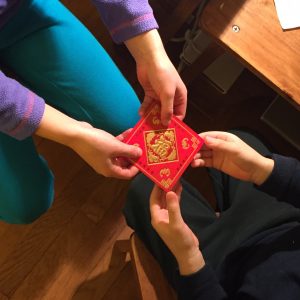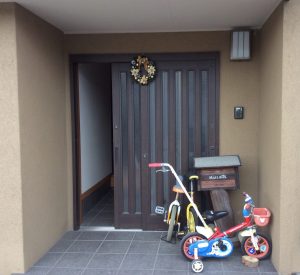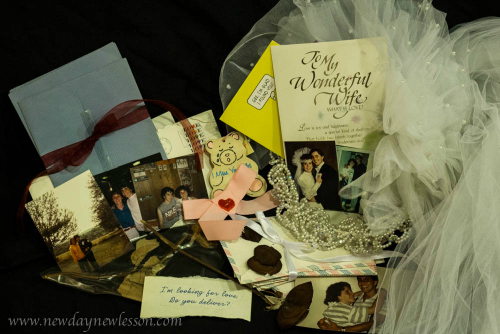
by Karyn Wills | Mar 19, 2015 | 2015, Awareness, Communication, Divorce, Family, Grief, Health, Husband, Identity, Life, Life Lesson, Marriage, Maternal Health, Mental Health, Mental Illness, New Zealand, Priorities, Relationships, Responsibility, Stress, Womanhood, World Motherhood
 I didn’t have a bad marriage.
I didn’t have a bad marriage.
I wasn’t beaten or mistreated.
My ex never had an affair.
Money stressors were manageable.
We rarely argued.
To the outside world we seemed absolutely fine. But we weren’t.
It was, for me, an intensely sad marriage. And for a long time I couldn’t work out why. Here was a perfectly pleasant man who wished me well and who responded to my affection. He worked hard and was what most of us would call a “good guy”. He still is. But my self-esteem was dropping and my mood was becoming a habitual mix of frustration and melancholy.
It was one of those slow drifts downwards, like water eroding rock.
Then, around 10 years ago, he was diagnosed with something call Alexithymia. It’s not a mental disorder but more of a fixed personality trait. It’s common in those formally on the autism spectrum, in those with Post Traumatic Stress Disorders and in some of us with attachment issues from our early childhood.
Basically, anyone with Alexithymia cannot identify the bodily sensations that go along with their emotions. They still have the same sensations but are unable to distinguish between them and label them. They also have a very limited imaginative life, which sounds fine, until you realise predicting outcomes and taking steps to avoid the less desirable ones, are in fact, a product of our imagination.
These two issues give rise to a deep lack of empathy and ability to relate to another human being. Sympathy –the intellectual understanding of the experience of another–can happen but the actual feeling of an emotion, as another has it, in the sense of true empathy, cannot.
For me, this meant I would have to be sobbing in front of my ex before he understood I was sad, and then have to tell him to give me a hug, as the appropriate response. He did not mean to be uncaring. He just never understood subtle body language or had the instinctive responses that most of us have.
There are always three choices in a situation: To alter it; to put up with it; or to leave.
For many years I did my best to see if things could change. I offered to go back to work, so he could get therapy. I suggested counselling, on more than one occasion. None of these offers were ever taken up.
The more I read about Alexithymia, the more I realised… I would never be taken up on any of these. People with Alexithymia see the rest of us as over-emotional and confusing. They cannot see why they would leave their completely logical realms. Their idea of a perfect partner is a kind body in the house with whom there is as little emotional deviation and routines are maintained – this was exactly what our marriage was.
As time went by, I became increasingly distant and detached. At times, I became unpleasant and down right bitchy. Then, around three years ago, someone asked me what made me happy. And I couldn’t tell them. From being someone who was a perpetual optimist, I was by then emotionally dead – aside from experiencing frustration and melancholy. It was a massive wake up call and I knew something had to change.
It did take three years for me to be ready. There is a comfort in familiarity that is enticing. But in the end, my physical body was beginning to suffer, my older boys were finding the emotional disconnect from their father tough going and the other side of the leap to leave seemed less stressful than staying.
I am sure I was by no means the perfect partner either. But I share this here because these are immensely lonely and soul-destroying relationships to be in – and many who are in them either think they are going crazy or that they are the only ones ever to have this experience or some combination of both. But neither are true.
You’re not crazy. You’re not alone. The shell of the outside relationship that the world sees is not the whole story.
I understand.
Have you ever known someone with Alexithymia? Tell us your tale.
This is an original post to World Moms Blog from our long-time contributor and mother to three in New Zealand, Karyn Sparkles Willis.
The image used in this post is attributed to Nathan Jones. It carries a Flickr Creative Commons attribution license.
Karyn is a teacher, writer and solo mother to three sons. She lives in the sunny wine region of Hawke’s Bay, New Zealand in the city of Napier.
More Posts

by Nadege Nicoll | Mar 6, 2015 | 2015, Adolescence, Boys, Communication, Family, Home, Humor, Kids, Life, Motherhood, Nadege Nicoll, Older Children, Parenting, Relationships, USA, World Motherhood, Younger Children

At the beginning of 2014, World Moms Blog asked me to define the coming year in one word. I replied: TRINITY.
No, I didn’t think I was a goddess – although feel free to disagree. . . in 2014, I was going to be three different mothers.
I have three kids, and for the first time, each of them was in a different developmental stage. I wasn’t sure whether this was good news or sit-tight-and-ride-the-wave news. But I felt ready, I was going to tackle that motherhood business with optimism and cheers.
(more…)
Nadege Nicoll was born in France but now lives permanently in New Jersey with her family. She stopped working in the corporate world to raise her three children and multiple pets, thus secretly gathering material for her books. She writes humorous fictions for kids aged 8 to 12. She published her first chapter book, “Living with Grown-Ups: Raising Parents” in March 2013. Her second volume in the series just came out in October 2013. “Living with Grown-Ups: Duties and Responsibilities” Both books take an amusing look at parents’ inconsistent behaviors, seen from the perspective of kids. Nadege hopes that with her work, children will embrace reading and adults will re-discover the children side of parenthood. Nadege has a few more volumes ready to print, so watch this space…
More Posts - Website
Follow Me:



by Kyla P'an (Portugal) | Feb 19, 2015 | 2015, Awareness, Being Thankful, Celebrations, Childhood, China, Culture, Education, Eye on Culture, Family, Husband, International, Kids, Life, Life Lesson, Marriage, Motherhood, Multicultural, Parenting, Relationships, Traditions, USA, World Events, World Motherhood, Younger Children
 Solar year, 2015—celebrated in most of the Western world— is small potatoes compared to its lunar counterpart starting today: The Year of the Goat, 4713.
Solar year, 2015—celebrated in most of the Western world— is small potatoes compared to its lunar counterpart starting today: The Year of the Goat, 4713.
Today, in many countries across Asia, people are celebrating Chinese New Year [CNY]. It marks the first day of the lunar year, which begins with the second new moon after the Winter Solstice.
CNY is the most important holiday for Chinese people world-wide and is celebrated in countries with significant Chinese populations (Hong Kong, Macau, Singapore, Taiwan, Indonesia, Philippines, Thailand, Malaysia and Mauritius).
Even right here in America, in ways both big and small, Chinese families are celebrating the Year of the Goat too.
My husband, a first generation Chinese-American, brought his Chinese culture into our home and together we have established our own family traditions.
Both our 8 and 5 year old children attend Chinese Language School so our celebrations typically begin there. This year, each of our kids performed in a class skit—one doing a New Year’s song and the other both a song and dance.
Their Chinese school rents out a local auditorium and the celebration goes on for four hours, complete with traditional paper decorations, red lanterns and Chinese snacks of spring rolls, scallion pancakes and fortune cookies (the latter of which I’m pretty sure is a wholly American invention).
And though the four-hour Chinese school celebration feels long and drawn out, it’s nothing compared to the 15-day celebration going on over in Asia.
We live just outside of Boston, a city boasting a large Chinatown. If we’re really motivated, we can fight the crowds and view Lion Dancers, firecrackers in the street and dine on authentic Chinese fare surrounded by thousands of people.
This year, however, our city is buried under record amounts of snow (96.7in/2.5m) so we won’t be making any such pilgrimage.
Sometimes we have friends over and make homemade wontons, a symbolic food representing a pouch of coins, or Hot Pot. Other years we just make sure we eat some kind of Chinese food (either at home or in a restaurant).
We also make sure we always give our kids Hong Bao, little, red envelopes filled with “lucky” money. Since our kids don’t get an allowance, this feels special to them. We never give them very much because it’s the gesture that counts but if they happen to be lucky enough to visit their great-grandmother around Chinese New Year, they might get upwards of $50.
I know these little traditions are modest compared to mainland China but we hope that in our small way we are instilling in our children a some sense of the deep culture they are part of.
恭禧發財
Gong Xi Fa Cai!
How do you hold on to your cultural heritage? What are some traditions you’ve incorporated into your own family?
This is an original post to World Moms Blog from our managing editor and mother of two in Boston, Massachusetts, Kyla P’an.
The image used in this post was taken by the author.
Kyla was born in suburban Philadelphia but spent most of her time growing up in New England. She took her first big, solo-trip at age 14, when she traveled to visit a friend on a small Greek island. Since then, travels have included: three months on the European rails, three years studying and working in Japan, and nine months taking the slow route back from Japan to the US when she was done. In addition to her work as Managing Editor of World Moms Network, Kyla is a freelance writer, copy editor, recovering triathlete and occasional blogger. Until recently, she and her husband resided outside of Boston, Massachusetts, where they were raising two spunky kids, two frisky cats, a snail, a fish and a snake. They now live outside of Lisbon, Portugal with two spunky teens and three frisky cats. You can read more about Kyla’s outlook on the world and parenting on her personal blogs, Growing Muses And Muses Where We Go
More Posts - Website
Follow Me:


by Melanie Oda (Japan) | Jan 8, 2015 | 2014, Awareness, Child Care, Childhood, Culture, Domesticity, Education, Expat Life, Eye on Culture, Family, Feminism, Grandparent, Home, Husband, International, Japan, Life, Life Lesson, Living Abroad, Marriage, Me-Time, Motherhood, Multicultural, Parent Care, Parenting, Priorities, Relationships, Responsibility, School, Social Equality, Womanhood, Women's Rights, World Motherhood, Younger Children
 Gender equality has been in the news quite a bit in Japan recently, sort of, and some things have happened closer to home that have me thinking.
Gender equality has been in the news quite a bit in Japan recently, sort of, and some things have happened closer to home that have me thinking.
It started when a (female) Tokyo assembly member was heckled in a sexist way. Then Prime Minister Abe introduced some new policies to let women “shine.” (He needs to get them doing something for the economy.) He even appointed several women to cabinet posts, for about five minutes, until they were slapped back down into their places over minor scandals.
In Japan, people are talking more about issues women face but no one seems to be doing much about them.
(Lest I forget: strangely enough, the declining birth rate is treated as a “women’s issue.” I seem to remember my husband being involved, too.)
I never considered myself a feminist growing up. Some members of the evangelical, conservative community I grew up in doubtless felt “feminist” was a new version of the “F-word.”
OK, so I went to a high school with more sports options for boys than girls. And yes, girls were encouraged to take chorus and home economics instead of woodworking or mechanics. So maybe I heard men from my community refer to grown women as “broads” or “gals.” There also were some restrictions at church regarding women’s and men’s roles. But I never felt that possessing certain types of baby-making parts limited my potential.
Then I moved to Japan, where gender roles are more firmly entrenched and my way of thinking slowly changed.
As I get older, and because I am a mother, I find that I am limited in ways that I couldn’t have foreseen as a young girl.
Some people may find life here in Japan freeing. If you aspire to be a homemaker a la Martha Stewart, then your life’s work would be very much respected and appreciated here. My husband wouldn’t bat an eyelid if he came home to a messy house because I’d spent the day at a preschool mothers’ lunch. He knows that is part of the job (on the other hand, it would never occur to him to pick up the mess himself.)
If, as a woman, you have other aspirations, Japanese culture seems designed to work against you. The glass ceiling is very much in tact. On the news here you do hear issues like lack of childcare and “maternity harassment” being addressed. But what gets talked about less often is that to many women, including myself, it feels as if there’s a glass door as well.
It’s my front door.
Before a woman can even think about what is facing her out in the world, she needs to address the forces that are keeping her at home. Some of these are practical, some are logistical, some are cultural and perhaps peculiar to Japan and it’s work culture.
For me, it starts with my husband: He leaves home at 7am every morning, but I have no idea what time he will be back. Sometimes it’s 7pm. Sometimes it’s midnight. He may be in the office that day, or he may suddenly be sent to another prefecture. He’s made international trips on 12 hours notice. I cannot depend on him being home at a designated time, by no fault of his own. The idea of him taking time off with a sick child is preposterous in the extreme.
I have been lucky enough to have two job offers recently, both of which would be more or less during school hours, but neither is nearby. If a child were to get sick and need picking up, or if god-forbid there was a natural disaster (which is always in the back of your mind if you are a mother in Japan,) then my husband would be closer. I mentioned that, and he completely shot me down. Not just the idea of him picking up the kids in case of an emergency, but the idea of a job anywhere outside of cycling distance from the school.
We live in a residential neighborhood. I patch together some part-time work here and there, but it’s not like there are loads of professional opportunities in a two kilometer radius.
I suddenly felt very limited, penned in, in a way I haven’t felt before. The glass door was slamming in my face.
I don’t think I’m alone in this conundrum. Go to almost any supermarket in a residential area during the day, and you will see women in their prime working years manning the register. Many of these women have university degrees. Many have licenses and qualifications to be doing other kinds of work, but they want to stay close to home. They also need salaries to stay under $10,000 year or face a peculiar Japanese tax code and insurance system that penalizes families where both partners have incomes over that amount.
Then there are my kids: Like 2/3 of Japanese women with children under 6, I stayed home when they were small. They now completely depend on me for everything. It seems to have never entered their minds that someone else could give them a bath or help them find their missing socks, mostly because no one else has ever done anything for them. Especially when they are sick, they want only me. It was very hard when my daughter was in the hospital, both children wanting to be with me and emphatic that no one else would do.
But now my youngest is in elementary school, and I would like to just be doing more of something….else, but for me to plunge into the workforce would be a huge adjustment for my children. Is it worth the stress? Can we survive what is sure to be a painful adjustment period?
Maybe if I had more family support, it would feel less impossible but as it is, it seems like everyone is against me.
Which brings me to the final characters in this comedy, my in-laws: They say they’ll watch the kids, then they change their minds. Or something better comes up. From their point of view, this house and these people are completely my responsibility. Anything they do is extra credit.
To be honest, we’re getting to the point where my in-laws need my help more than I need theirs.
They aren’t shy about letting me know my place.
One day not too long ago, my son was playing at the park with his friends. It was getting close to homework time, so I called him and told him to come home. He said he was playing with Jiji (which is an endearing term for grandfather used in our region of Japan,) and could he play for a bit longer? Since he was out with an adult, I said okay.
The next day, I got a verbal whipping from my father-in-law over the phone, accusing me of being irresponsible, a bad mother. It took me a few minutes to understand why he was saying this, but when I got to the bottom of it, I realized my son had lied to me. He was playing with his friends when Jiji walked by and told him to go home. My son told him I wasn’t at home and said he couldn’t come back until I did. (I must have called right at this point.) “How dare you not be home in the afternoon?” said Jiji.
Putting aside that none of this nonsense was true, so what if I wasn’t home in the afternoon? Of course I wouldn’t have left the kids to wander the neighborhood like stray dogs, but why was my not physically being inside my house such an issue to him? His assumption that it was my duty to be always available to everyone took me by surprise.
I could almost hear the glass door slamming again.
There are also other barriers for women in Japan—an over active PTA for one, and a myriad of community responsibilities attended to exclusively by women for another. I imagine most women in the world encounter both the “glass door” and the “glass ceiling” in some form or another, but in Japan only one of these factors is seems to be getting much attention. Building new daycare facilities isn’t enough; the government stating goals to increase women’s participation in the workforce isn’t enough. Until we do something about that glass door, nothing will change for one of the best educated, least utilized group of women in the world.
Do you feel you are fulfilling your potential, both at work and at home? What’s the situation like in your country?
This is an original post for World Moms Blog from our writer and mother of two in Japan, Melanie Oda.
If you ask Melanie Oda where she is from, she will answer "Georgia." (Unless you ask her in Japanese. Then she will say "America.") It sounds nice, and it's a one-word answer, which is what most people expect. The truth is more complex. She moved around several small towns in the south growing up. Such is life when your father is a Southern Baptist preacher of the hellfire and brimstone variety.
She came to Japan in 2000 as an assistant language teacher, and has never managed to leave. She currently resides in Yokohama, on the outskirts of Tokyo (but please don't tell anyone she described it that way! Citizens of Yokohama have a lot of pride). No one is more surprised to find her here, married to a Japanese man and with two bilingual children (aged four and seven), than herself. And possibly her mother.
You can read more about her misadventures in Asia on her blog, HamakkoMommy.
More Posts
by Nihad | Jan 7, 2015 | 2014, Awareness, Education, Egypt, Family, Life, Relationships, Womanhood, Women's Rights, World Moms Blog, World Motherhood
 Happy New Year! In this season of resolutions, many of us are looking for ways to live a happier life. As a mother, I believe increasing one’s happiness is a wonderful thing to do for oneself and for one’s family–an angry, bitter and unhappy woman can never make her family happy. But how do we find our way to a happier life?
Happy New Year! In this season of resolutions, many of us are looking for ways to live a happier life. As a mother, I believe increasing one’s happiness is a wonderful thing to do for oneself and for one’s family–an angry, bitter and unhappy woman can never make her family happy. But how do we find our way to a happier life?
Happiness is all about us, about our mindset, what we believe and how we feel. Our circumstances, our possessions, our job and our bank account are just temporary sources of happiness. Real happiness shines from the inside out, reflecting how we feel about ourselves and how satisfied we are with who we are and how we live. As a life coach, here are 10 practices I’ve found that enhance my daily happiness.
1- Improve your self image: For me, the first and most important source of happiness is how I feel about the image I see in the mirror. How proud do I feel about myself? What kind of relationship do I have with myself? Do I offer myself love, respect, acceptance and appreciation? Or is it guilt, shame, anger, and low self esteem? Being happy with who I am is my main source of happiness.
2- Don’t seek approval of others: Many women live in a way they don’t want just to please their partner, their family, or their friends. Though this may result in short-term approval and acceptance, living according to others’ expectations will not create lasting happiness.
3- Keep your word to yourself: Learn to say NO to what is not a priority in your life. If you set a ME time for yourself ,do not give it up easily. Keeping your word to yourself will greatly enhance your feeling of self worth and self respect.
4- Eat healthy food and exercise: Healthy food will positively impact your mood and give you more energy. Working out regularly has a great effect on physical and mental health. According to a psychiatrist friend of mine, walking one hour in open air equates the effect of an antidepressant pill. So when you feel down, try going for a walk outside.
5- Let go: Let’s face it. There are some aspects of our lives we cannot control. We certainly can’t control, or change, the past. Accepting the reality that we can do nothing brings a great relief and freedom.
6- Find your passion: Working on something you love brings real satisfaction. If you haven’t yet found your passion, play around with different hobbies like making or listening to music, drawing, or writing. Expressing your thoughts and feelings in any way will help you get clear about what your passion is.
7- Keep only fulfilling relationships: Continuing with unhealthy and non-fulfilling relationships is an energy drain. See no. 3.
8- Keep a gratitude journal: Make it a habit to jot down 5 things in your life for which you are grateful. If have something you complain about all the time, follow your complaint with any positive you can find in it. Eventually, you may find a blessing in what you were complaining about.
9- LOL: Find a reason every day to laugh, and spend time with your beloved ones having fun and laughing out loud.
10- Spend some time away from media and technology: Take a brief holiday from the TV, radio, internet, even your iPhone. Spend the time working out, meeting friends, reading books, playing with your kids and pets, or taking a walk. Observe how you feel. Just few days (or even an afternoon) without media and technology will make great difference in your life and your satisfaction.
These are my tips on how to live a happier life. What are some things you do to add happiness to your life? What is your definition of happiness and do you find it easy to live according to this definition? What challenges do you face to live a happier life?
This is an original post for World Moms Blog by Nihad from Alexandria, Egypt. Nihad blogs at Aurora Beams Life Coaching.
Image courtesy of “Pretty Girl In A Hat At Sunset” by Stuart Miles, FreeDigitalPhotos.net

Nihad is an Egyptian woman, who was born and has lived her whole life in Alexandria, Egypt. She says, “People who visited this city know how charming and beautiful this city is. Although I love every city in Egypt, Alexandria is the one I love the most.”
She is a software engineer and has worked in the field for more than twenty years. But recently she quit her job, got a coaching certificate and she is now a self employed life and career coach. She says, “I believe that women in this era face big challenges and they are taking huge responsibilities. That's why I have chosen my niche -- women looking for happiness and satisfaction. I help and support them in making whatever change (career change, life change, behavior change, belief change…) they want to bring more satisfaction and happiness in their lives.”
Nihad is a mother of two lovely boys, 15 and 9 years old. She states, “They are the most precious gifts I have ever had. I madly love them, and I consider them the main source of happiness in my life.”
Our inspiring mother in Egypt can also be found at Aurora Beams Life Coaching.
More Posts

by Susie Newday (Israel) | Dec 21, 2014 | 2014, Childhood, Friendship, Israel, Life, Moving, Susie Newday

They sit there.
A mixed pile of emotions, long lost puzzle pieces of my youth that have surfaced with a surreal reminder of joy and heartache. A collection of recollections of the beauty and naivete of my tormented, confused yet vibrant teen years.
Pieces of papers and assorted mementos, all too precious for me to have thrown away, yet not important enough for me to taken them when I started my married life and moved away.
Yet here they are. Twenty-five years later they have made the journey overseas and have arrived in my home. When my parents cleaned out my childhood home before moving away, I once again couldn’t bear for these pieces of my youth to be thrown out without a second glance. Who knows what treasures might be hidden in their midst.
Now I’m overwhelmed. By the amount and variety of written correspondence I saved. There are letters from my first love at the age of 14, so beautiful, sincere and full of promise. There are tender letters from my husband back in the years before email and text messages. There are stacks of heartfelt letters from people whom I don’t remember, people I’m sure I thought I would never forget. There are letters from people whom I remember but am surprised to find out how close I used to be with them. There are blasts from the past like my old college roommate who by chance recently friended me on Facebook. There are cards and yearbooks full of short wishes and goodbyes.
Some comments make my heart go thump, while others like “ Don’t beat up too many boys.”, remind me of parts of my personality that I wish I could forget. There are words of friendship, caring, support and encouragement that warm the cockles of my heart. And I wonder yet again why certain people stayed in my life and others drifted away.
That’s the hard part of nostalgia, trying to make sense of things, trying to understand how you gently got rerouted to a path so wonderful yet so different than the one you had envisioned.
The empty seductive promises of the past are dangerous, for they’re not real in the present moment in time. They were real in a different reality when you were a different person. Yet even so, it’s hard to read your youth without wondering about alternate endings to your life story. The past is an enticing illusion, a strong magnet drawing you in and distorting the present.
Do you think there is any way to embrace the joy and wonder of what was without leaving both the past and the present a little less whole?
Susie Newday is a happily-married American-born Israeli mother of five. She is an oncology nurse, blogger and avid amateur photographer.
Most importantly, Susie is a happily married mother of five amazing kids from age 8-24 and soon to be a mother in law. (Which also makes her a chef, maid, tutor, chauffeur, launderer...) Susie's blog, New Day, New Lesson, is her attempt to help others and herself view the lessons life hands all of us in a positive light. She will also be the first to admit that blogging is great free therapy as well. Susie's hope for the world? Increasing kindness, tolerance and love.
You can also follow her Facebook page New Day, New Lesson where she posts her unique photos with quotes as well as gift ideas.
More Posts - Website
Follow Me:

























